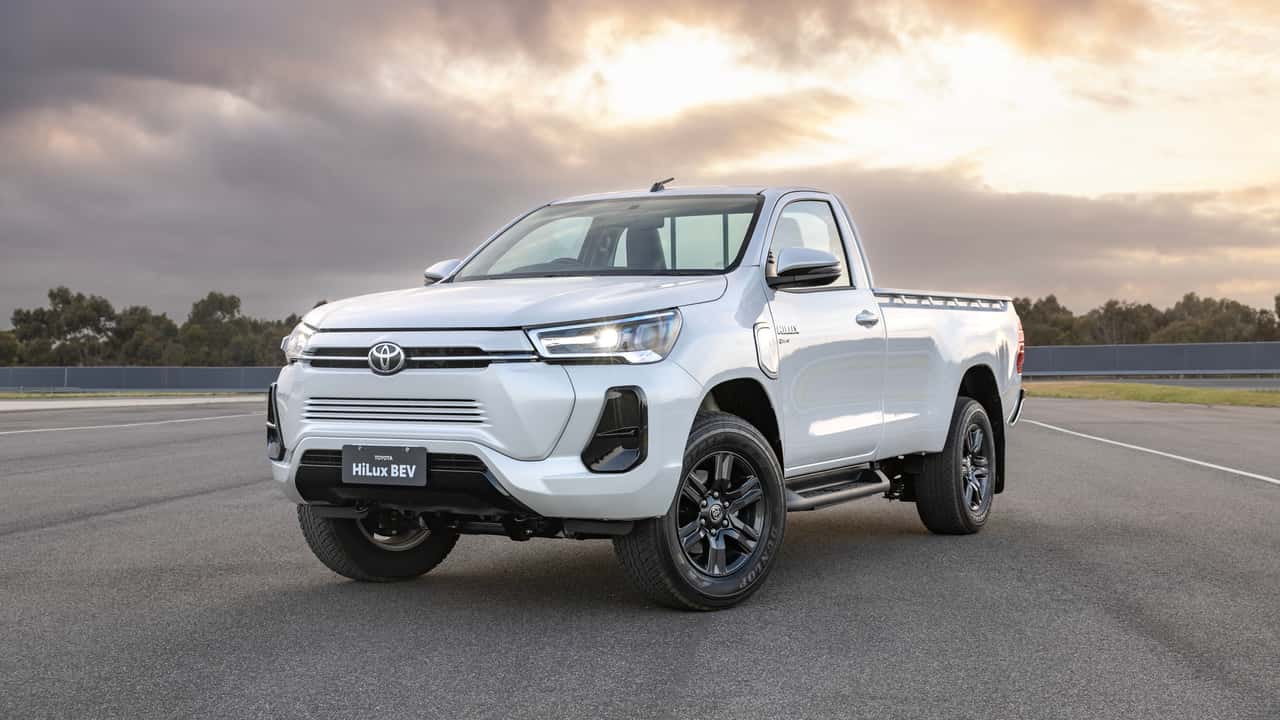Toyota has showed a whole bunch of EV concepts over the past two years, but the reality is its showrooms desperately need more electric cars. The automaker only sells a handful of battery-electric vehicles globally at the moment: the bZ4X SUV, the China-exclusive bZ3 sedan, and the Lexus RZ and UX 300e. But a fifth one will soon be added to the list of production Toyota EVs, but only in Thailand and only in limited numbers: an all-electric pickup truck.
The automaker said it will soon start a trial with the new EV in Thailand, a market where pickup trucks make up almost half of total vehicle sales. Pras Ganesh, executive vice president of Toyota Daihatsu Engineering & Manufacturing, told Reuters that engineers are working on adapting Toyota electric pickups to local conditions. According to Ganesh, a small batch of battery-electric pickups will be deployed as taxis in the city of Pattaya in early 2024.
“We will first start looking at public transit,” Ganesh told Reuters. Toyota is also considering testing other EV pickups for deployments including last-mile delivery services, he added. The company is also building up EV R&D capacity in Thailand, which is one of Toyota’s five global R&D centers.
Gallery: Toyota Hilux Revo BEV

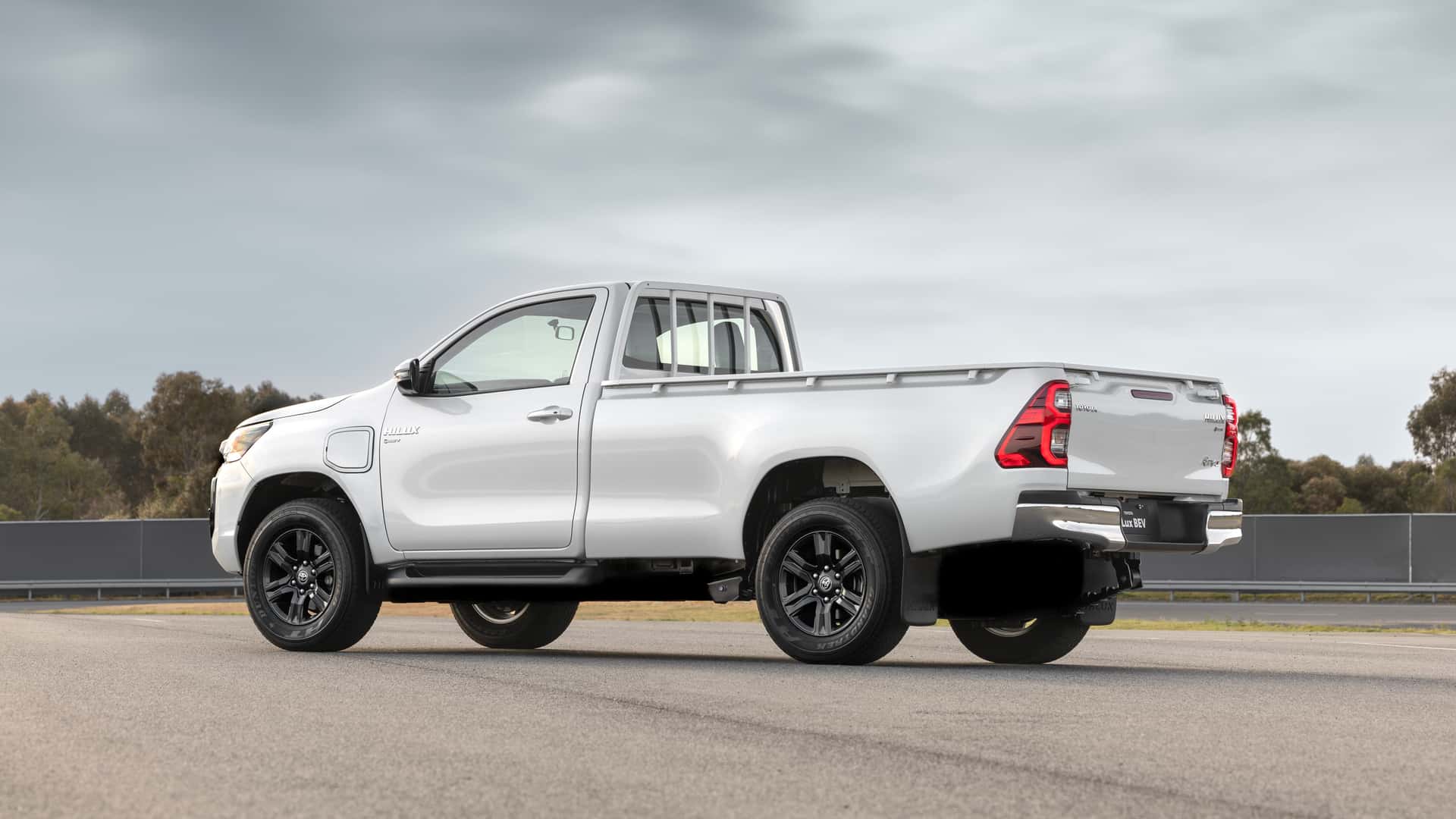
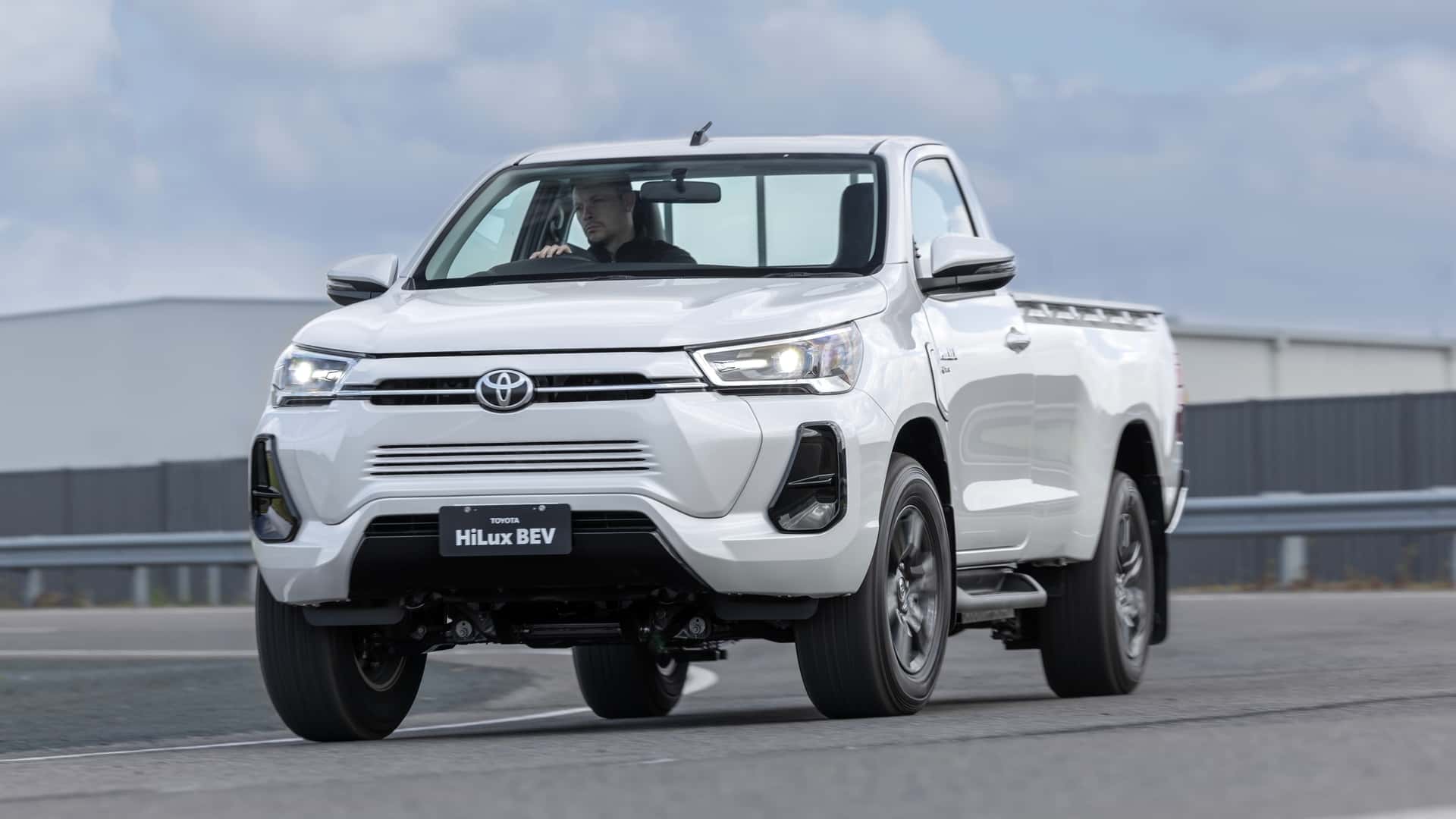
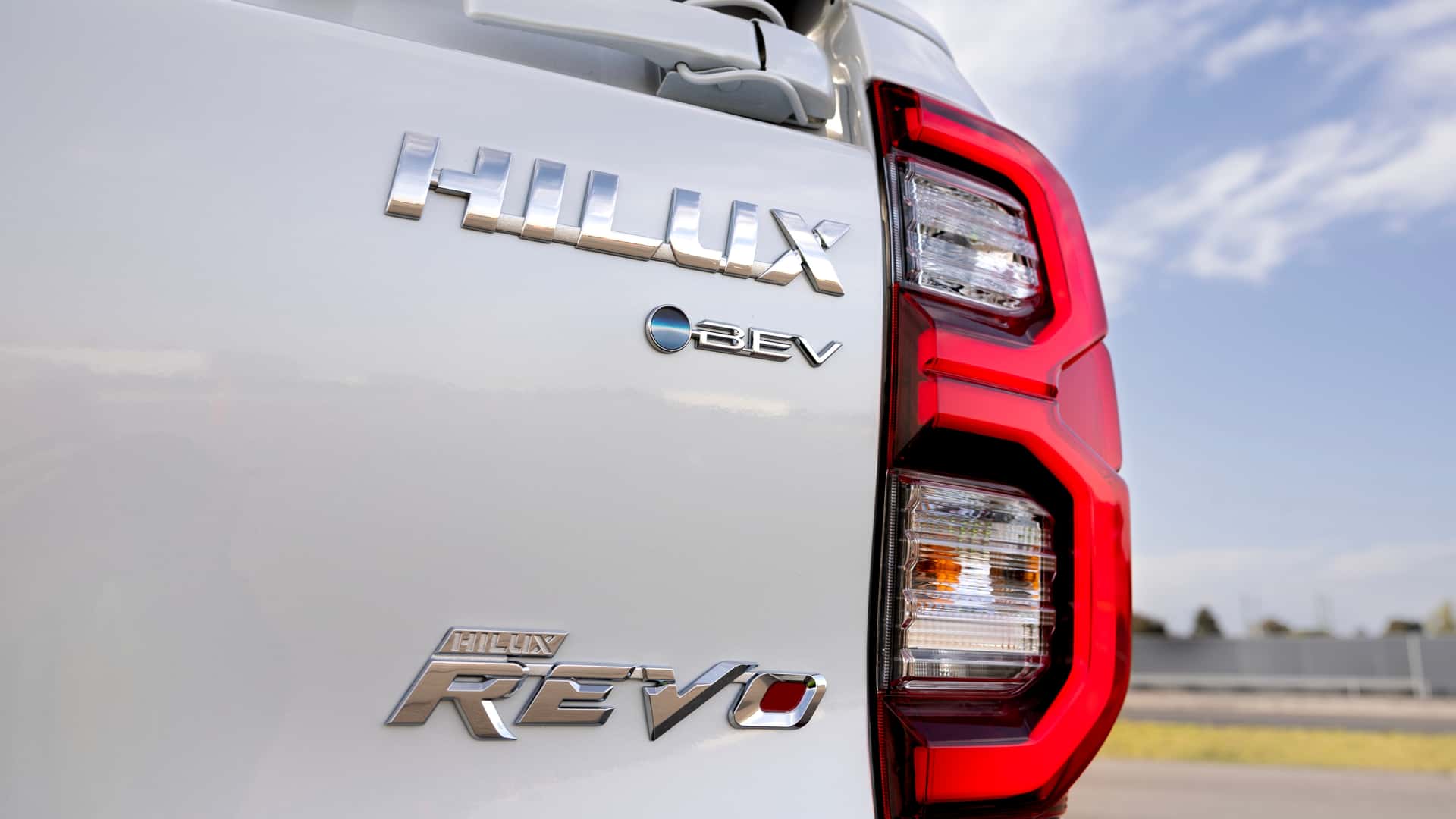
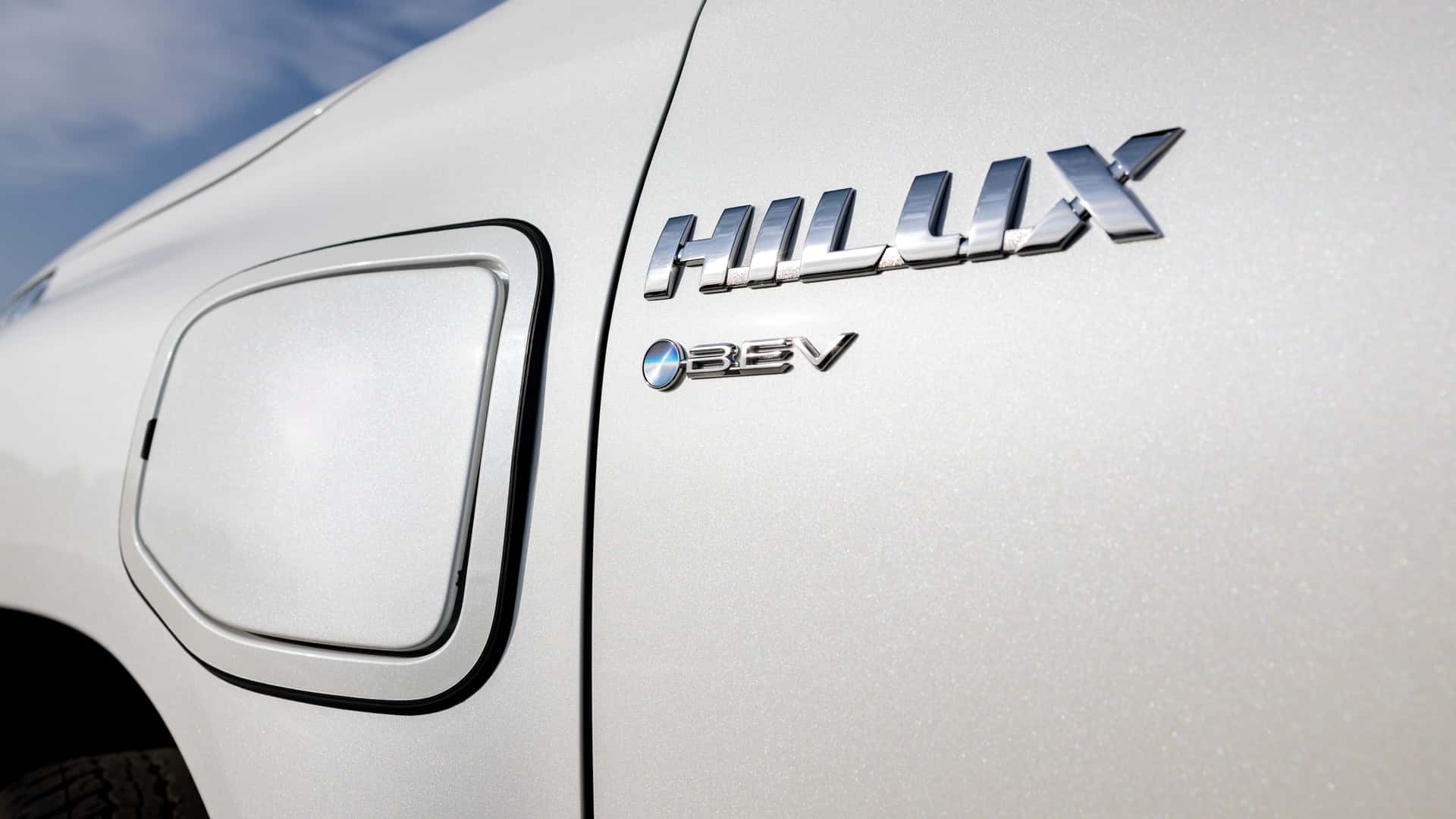
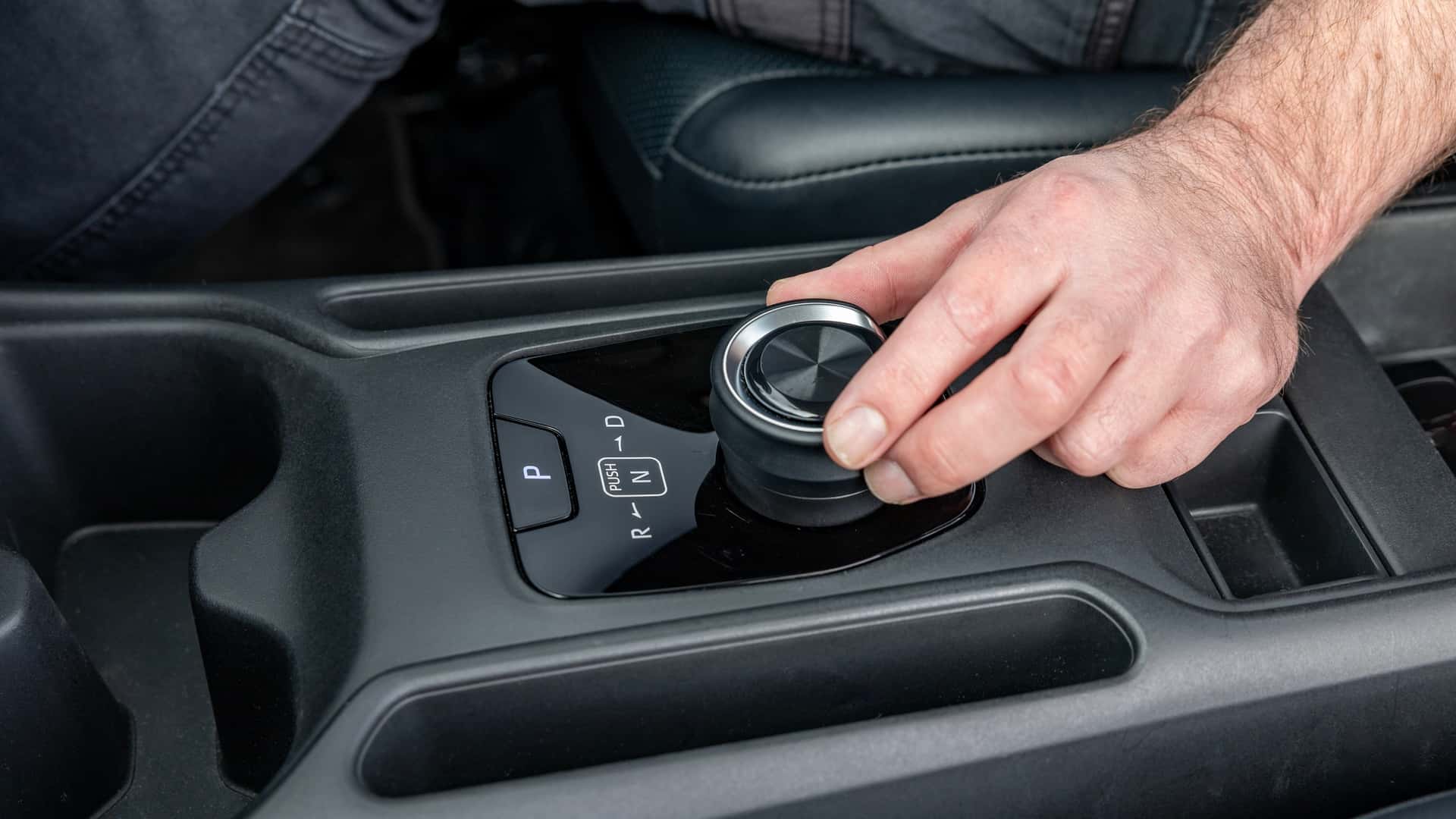
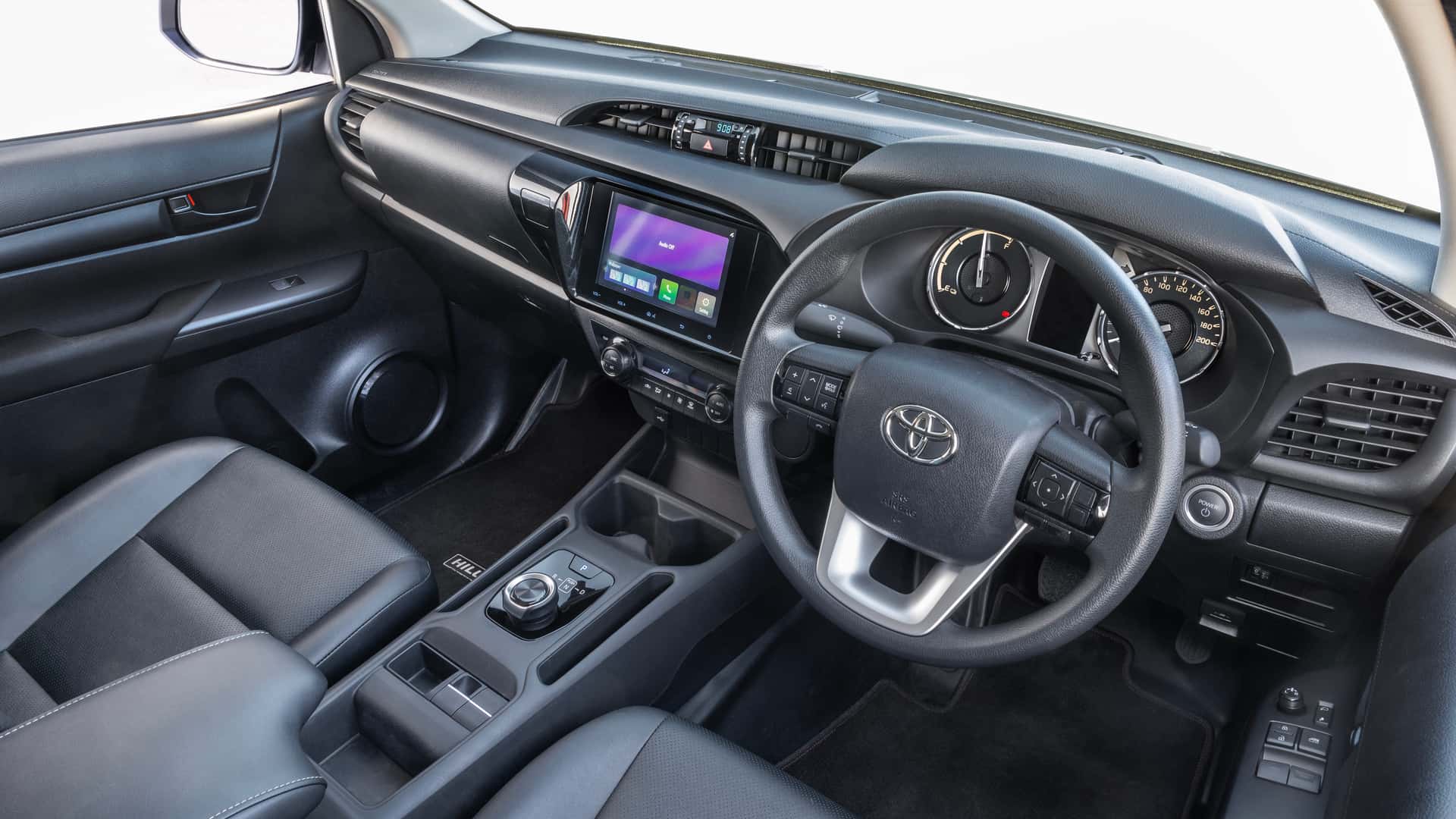
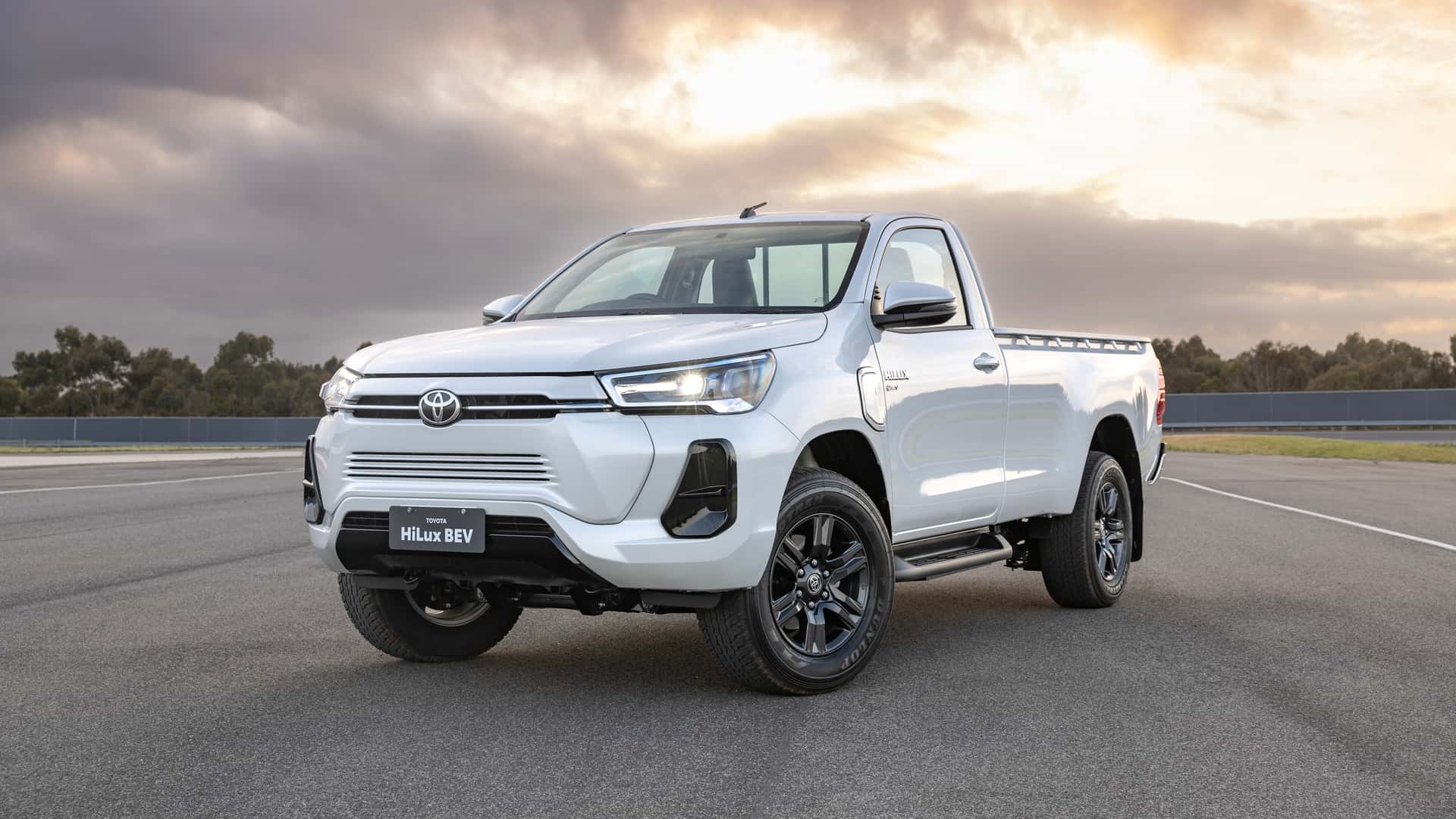
While Ganesh did not say which EV pickup would go on trial in Thailand, I can think of at least two possibilities. One is the Hilux Revo BEV Concept unveiled in Thailand late last year; Toyota didn’t announce when commercial sales of said model would begin. The second choice could be the IMV 0 concept, which debuted at the same event and was also on display at the Japan Mobility Show last month. The IMV 0 was described as a brand-new IMV modular light commercial pickup for Thailand that will be “truly affordable and truly innovative.” Toyota said the production version was “over a year away.” The IMV 0 seems to be powered with internal combustion, but perhaps it could be adapted with batteries as well.
Selling an electric Hilux and/or IMV in Thailand would help Toyota counter Chinese competition in the Southeast Asian market. Toyota launched the bZ4X last year in Thailand, but the electric SUV has been so far outperformed on the market by rivals from BYD and Great Wall Motor.
Last month, Toyota flew a Hilux Revo to Australia for some additional testing and to get some input from large-volume Hilux customers in the country. This indicates that Toyota is also considering Australia as a potential market for the electric Hilux.
What about the U.S.? The Hilux Revo probably has zero chance of making it stateside since the ICE-powered Hilux on which it’s based is not sold in North America. But Toyota recently showed the production-ready EPU Concept at Japan Mobility Show, and a production model based on that study might make a great rival for the Ford Maverick. Given the massively positive response to the EPU, Toyota would do well to listen to its customers and make that a reality.
Toyota, one of the world’s leading automobile manufacturers, is set to introduce electric pickups as taxis in Thailand in the near future, according to recent reports. This move marks a significant step towards promoting environmentally-friendly transportation options in the country.
The decision to use electric pickups as taxis in Thailand comes as part of Toyota’s broader initiative to expand its lineup of electric vehicles and reduce its carbon footprint. This move is in line with the growing global trend towards sustainable transportation solutions, as governments and companies alike strive to reduce greenhouse gas emissions and combat climate change.
The use of electric pickups as taxis in Thailand is particularly significant, given the country’s heavy reliance on automobiles for transportation. With traffic congestion and air pollution being major concerns in major cities like Bangkok, the introduction of electric taxis can help alleviate these issues and improve the overall quality of life for residents.
In recent years, Toyota has been investing heavily in research and development of electric vehicles, as it looks to transition towards a more sustainable future. The company has already introduced several electric models in markets around the world, and the move to use electric pickups as taxis in Thailand is a testament to its commitment to promoting cleaner and greener transportation solutions.
While the use of electric pickups as taxis is still in its early stages, it is expected that the initiative will be well-received by both drivers and passengers alike. Electric vehicles offer numerous benefits, including lower operating costs, reduced emissions, and a smoother and quieter ride experience.
As Toyota moves forward with its plans to introduce electric pickups as taxis in Thailand, it is likely that other automobile manufacturers will follow suit and introduce similar initiatives in other countries. This is a positive development for the environment and for customers, as it signals a shift towards more sustainable transportation options that benefit both people and the planet.
In conclusion, Toyota’s decision to try out electric pickups as taxis in Thailand is a welcome development that will help promote cleaner and greener transportation options in the country. As electric vehicles become increasingly popular around the world, initiatives like this will play a crucial role in addressing climate change and improving the quality of life for people everywhere.

